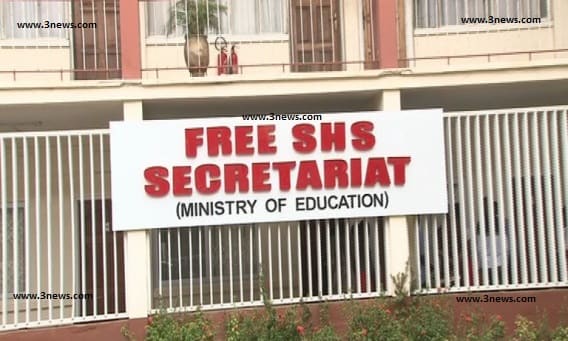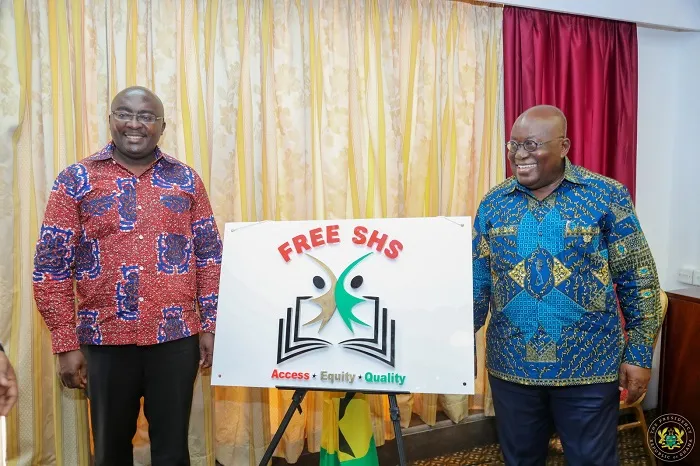Baobab Market, a nongovernmental organisation in the Northern Region is asking government to make available the policy document on its flagship project Free Senior High School. While commending the government for successfully rolling out this social intervention which seeks to ensure equal access to education, the group argued that the absence of a policy document gives room for speculations on the policy requirements and provisions the policy hinges on. At a press conference in Tamale, the Baobab Marketing lead advocate Abubakar Ayuba among other things said the policy is also needed to guide all stakeholders on their role to help sustain the policy. “The policy is also needed to guide all stakeholders, including school authorities, parents, students, teachers, and in fact, all well-meaning Ghanaians, in their expectations and responsibilities towards the policy”. The group also stated that the policy is silent on measures targeted at helping girls overcome barriers to their performance in subjects like science, technology, and engineering and mathematics at the senior high school level. They are demanding a 50% advance payment to Senior High Schools each year. “At least 50% should be paid before reopening and the difference transferred when all admissions have been completed,” Mr. Ayuba said. Having interacted with schools, students, parents and other stakeholders, the group called on the government to: * Make adequate provision for students who will repeat a class at the Senior High School as well as those in the TVET institutions. * Take appropriate steps at improving the conditions and teaching and learning environment of deprived SHS to match the standards of the so-called first class or Category ‘A’ schools, without which most children will refuse to enrol when placed in such schools. * To consider other sources of sustainable funding for the Free SHS policy rather than the proposed Voluntary Education Fund (VEF) and the oil revenue, which can become very unpredictable. * To address inequities by targeting poor and marginalised children including girls, children with special needs and those of geographically disadvantaged locations, And recruit qualified teachers for special needs education to enhance inclusion and improved learning outcomes. Furthermore, Mr. Ayuba remarked, “Whilst commending the on-going review of curriculum and teaching standards, we further call on the Government to restructure schools teaching and learning content and methods so as to develop students’ critical thinking skills, entrepreneurial acumen and confidence to compete in the workplace and participate meaningfully in national development, since the ability of the policy to improve students’ functional and employable skills is not guaranteed given the current nature of the education curriculum and teaching methods, which are geared more towards enabling students to pass their termly and final examinations than preparing them for the world of work”. By Zubaida Ismail | 3news.com | Ghana]]>
Government charged to make policy document on Free SHS public
Reading Time: 3 mins read
Recent Posts
- Ghanaian sports journalist Naa Shika Stargurl shines on global stage
- Central Regional Minister to go to Court over her dismissal from NPP?
- NPP accuses NDC of lawlessness, demands urgent re-collation by EC in disputed constituencies
- Anytime there’s vigilance, NDC wins – Malik Basintale
- Akufo-Addo statue in Takoradi suffers partial damage amid controversy
- Current financial year proving challenging for COCOBOD – IMF
- Agona West NPP expels Regional Minister, 282 others for anti-party activities
- Cholera outbreak in Western region claims 14 lives, over 800 cases recorded
Popular Stories
-
Agona West NPP expels Regional Minister, 282 others for anti-party activities
-
Central Regional Minister to go to Court over her dismissal from NPP?
-
Ghanaian sports journalist Naa Shika Stargurl shines on global stage
-
Akufo-Addo statue in Takoradi suffers partial damage amid controversy
-
NPP’s Appiah Kubi opens up about recovery from ‘poisoning’ after leading #KenMustGo campaign

ABOUT US
Newstitbits.com is a 21st Century journalism providing the needed independent, credible, fair and reliable alternative in comprehensive news delivering that promotes knowledge, political stability and economic prosperity.
Contact us: [email protected]
@2023 – Newstitbits.com. All Rights Reserved.














